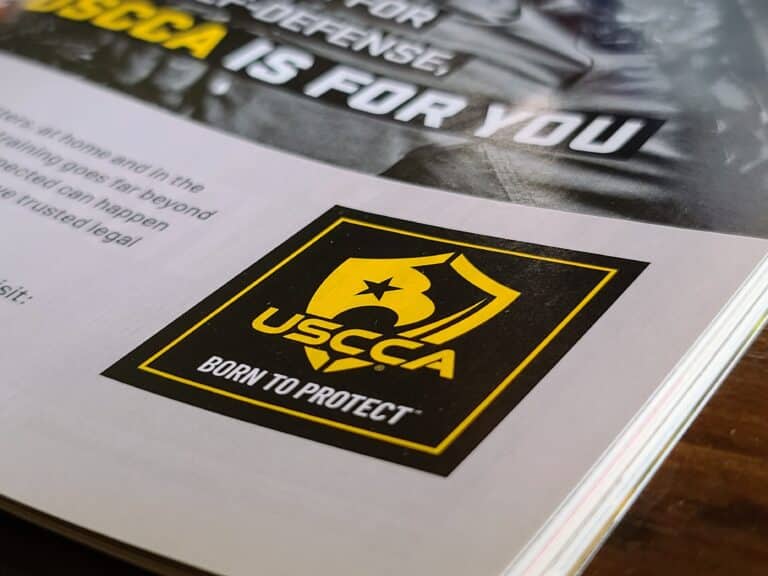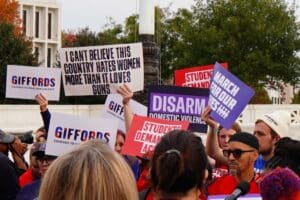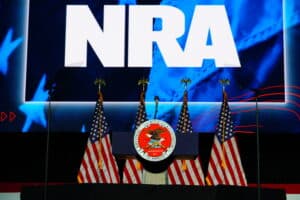The head of the United States Concealed Carry Association’s (USCCA) new political advocacy group has a new plan for expanding gun rights.
Katie Pointer Baney, executive director of the group’s new Action Fund, spoke exclusively with The Reload to explain her vision for the 501(C)(4) non-profit. She emphasized USCCA’s commitment to using the group for in-person activist training and political rallies. But she said the idea is to empower gun owners themselves.
“We’re focused less on saying ‘gun owner vote for A, B, or C,'” Baney told The Reload. “Instead, we’re saying, here are the critical policies; here are the tools and resources necessary for you to make the decision on who you think is best to vote for.”
She said the goal is to build a “2A citizens army.” That’s not an uncommon mission among gun-rights groups. But USCCA’s scale, with over 800,000 paying members, makes it a more realistic short-term goal in the race to shore up the movement as the NRA shrinks in the face of mounting financial and legal issues.
“What we really want to do is create this grassroots 2A citizen army. I think people are generally dismayed and frustrated at the political process. They don’t know where to start. They don’t know how to make a difference. They kind of throw their hands up and are frustrated.”
Baney said a significant focus of the group will be activist training, but that doesn’t mean it will merely sit back and hope the activists they train can figure everything out on their own. Instead, the Action Fund hopes to differentiate itself from the others with its ground game. Instead of focusing entirely on legal fights or national elections, as most other non-NRA gun groups have done, it is planning a more expansive push.
“I think this is where we’re going to be different and complementary to some of the other Second Amendment advocacy groups, and maybe their lead focus is on launching legal challenges, or others are really only focused at the federal level,” she said.
Before joining USCCA, Baney spent a dozen years as a Republican staffer in Congress, including with the House Committee on Homeland Security and former Speaker Paul Ryan’s office. She plans to draw on that political experience and understanding to guide the group’s operation at each level, even in deep blue states.
“For example, the USCCA has a pretty large presence in California, and we’re looking at county-by-county restrictions,” Baney said. “That would be an area where we understand the political realities of winning. A statewide race isn’t necessarily the goal. The goal is being able to make a difference even on a local or county level.”
That doesn’t mean they aren’t going after the swing states, too.
“Of course, it’s different when we look at a state like Wisconsin where we’re headquartered, which is an incredibly purple state, a swing state integral to the 2024 presidential election,” she said. “When we look at gun owners here, when we’re hosting events and having important policy conversations, it’ll be much more geared to a statewide and federal level.”
Baney argued the key to the group’s success will lie in changing the narrative on gun ownership and incorporating the people who bought a gun for the first time in recent years, a cohort that defies many political and demographic stereotypes for who owns a gun in America.
“We know there are millions of new gun owners. We know that we need to change the perception of gun ownership,” Baney said. “And I think the best way to do that is to elevate the voices of everyday gun owners, of their stories. To elevate them in communities with, again, the resources and tools necessary to make a difference.”
In a movement filled with groups that lead with bomb throwing and serving up political red meat, Baney said the Action Fund will focus on common grounds.
“I think you ultimately alienate people if you dive into those hyperpartisan political games,” she said. “I don’t think that’s a win for the Second Amendment. I don’t think that’s a win for gun owners.”
But that doesn’t mean Baney can’t see the obvious breakdown between where the parties stand on guns, with national Democrats having moved to the left and Republicans to the right since even as recently as the Obama Administration.
“Are there political realities to one party over the other largely supporting Second Amendment rights? Yes, of course. We acknowledge and understand that,” Baney said. “But that doesn’t mean that there aren’t Democrats or Libertarians or Green Party or however else you identify your political party affiliation, that doesn’t mean that there aren’t others who support the Second Amendment. And with all of our efforts, what we’re trying to do is broaden this tent of gun ownership.”
Still, despite the group’s growth and incorporation of new demographics, the NRA lost more members last year than the USCCA has ever had. And most of those USCCA members joined before it was doing any political work at all, instead likely looking for the benefits of the group’s “concealed carry insurance.” It remains to be seen whether an approach focused on building a big tent with newcomers as a focus can outperform a more polarizing approach that seeks to extract as much funding and support from your core demographic, even at the cost of those at the fringes of your position.
Baney is confident the USCCA Action Fund can leave a mark.
“The Second Amendment is part of the founding document of our country. It really shouldn’t be partisan or political at the end of the day,” she said. “You take an oath of office when you’re elected to uphold the Constitution. The Second Amendment is part of that.”






